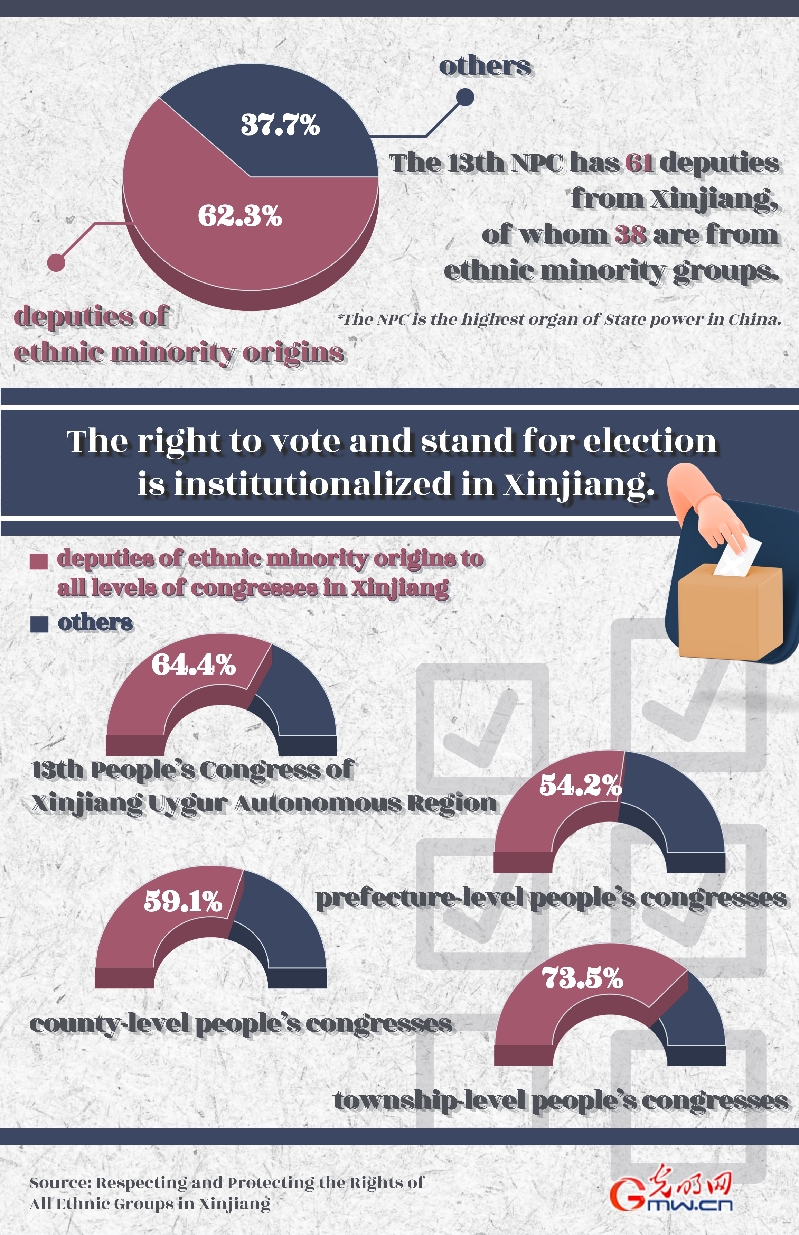


The right to vote and stand for election is institutionalized. As stipulated by the Constitution and laws, Chinese citizens of any ethnic origin have the right to vote and stand for election. The principles in elections are: universal suffrage, equality, combination of direct and indirect elections, and multi-candidate election [In elections for national and local people’s congresses, the number of candidates for election must exceed the number of posts available.]. Citizens of all ethnic groups in the autonomous region directly elect deputies to the people’s congresses at county and township levels, who then elect deputies to each succeeding level, from the prefecture-level congress, through the congress of the autonomous region, to the National People’s Congress (NPC).
The 13th NPC has 61 deputies from Xinjiang, of whom 38 (62.3 percent) are from ethnic minority groups. The NPC Standing Committee also has ethnic minority members from Xinjiang. The 13th People’s Congress of Xinjiang Uygur Autonomous Region is formed by 548 deputies, of whom 353 (64.4 percent) are of ethnic minority origins. Xinjiang now has 2,488 deputies to prefecture-level people’s congresses (including 1,349 of ethnic minority origins, 54.2 percent), 16,960 deputies to county-level people’s congresses (including 10,025 of ethnic minority origins, 59.1 percent), and 43,204 deputies to township-level people’s congresses (including 31,739 of ethnic minority origins, 73.5 percent).
点击右上角![]() 微信好友
微信好友
 朋友圈
朋友圈

请使用浏览器分享功能进行分享
